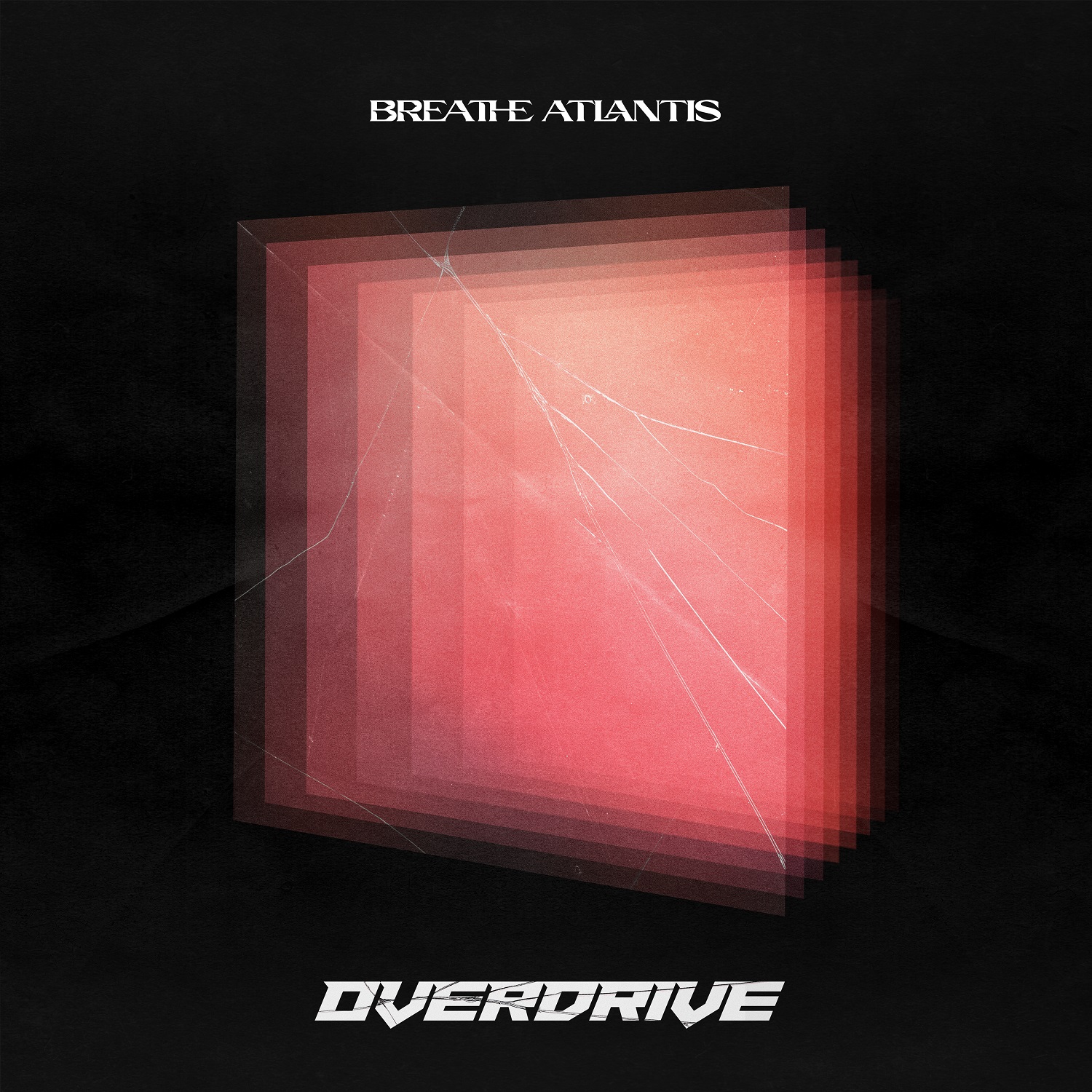
Breathe Atlantis
March 21, 2022| Noizze | RELEASE REVIEW

Breathe Atlantis – Overdrive | Album Review
If the pandemic taught us anything, it’s that mental health will affect us all in the end. In these forgiving times we see more and more material surrounding it come to the forefront. Breathe Atlantis give us their slice of mentality with new album Overdrive.
Following 2019’s Soulmade, the German quartet’s fourth album has ten tracks of traditional metalcore. Blending sharp metal riffs with melodic electronics to represent the duality of not only a genre but of the human mind.
“Prepare for war” Nico Schiesewitz growls with vigour in the opening ‘Break The Silence’. The intro for the track fills us with anticipation as Breathe Atlantis swell into a filthy riff. Schiesewitz’s clean verses allow the frontman to express the realities of being trapped by mental affliction. “I will break the silence” the singer claims as the instrumentals wind down. We wait for the explosion into a chorus so are thrown through a loop when the song slows further still, grinding any remaining momentum to a halt. ‘Break The Silence’ picks up again with subtle melodies from Jan Euler’s guitar, leading into a scream driven bridge. The breakdown we’re treated to is a perfect example of Lasse Weigang (bass) and Silas Fischer’s (drums) ability to craft a huge metalcore sound.
Breathe Atlantis expose us to multiple facets of mental health issues across their 36 minute run-time. The title track speaks of how the mind is a prison and the need to “kill the devil inside”. Depression’s insidious nature on full display as the title track tricks us into believing it’s slower than its opening counterpart. A deceivingly simple riff from Euler reminds us less is ultimately more. While ‘Earthquake’ lends itself to moments of breakthroughs where we feel as though “no earthquake shakes my ground”. With it’s pop-punk style opening however, this ‘Earthquake’ unsettles us for the wrong reasons. It picks itself up again with screams of growls of determination set within a spiral of guitars. The bridge is Breathe Atlantis as they should be, but this moment is fleeting, petering into a lighter heavy metal sound.
Those of us who’ve experience poor mental health can attest the worst part of it sometimes lies within the monotony of it. The same patterns repeating ad nauseum. Despite their attempts to avoid falling into this trap, Breathe Atlantis fall into it anyway. Multiple songs open with muffled instrumentals slowing coming into aural focus. A typical style of intro for the genre but one which becomes overused and tired very quickly on this record. This is an incredible disservice to the band as the material they have on display in Overdrive is good beyond those intros.
An example of this is ‘Savior’. The first of two songs featuring other artists, this is an ode to feelings of frustration bred from being taken advantage of by a friend. There are times we have all become respite for another in a variety of ways. What happens though when we have nothing left to give? The blend of screams and cleans from Imminence’s Eddie Berg lends itself beautifully to that vexation. ‘Savior’’s intensity masks an intricate melody we really have to listen for. A sonic boom beneath one of Schiesewitz’s grittier screams opens the song up to take multiple directions. Breathe Atlantis could have gone full steam ahead into aggression. Instead, they chose to dwell within a string interlude. This exudes the sadness in giving up on someone we were once close to. The strings on the violins could well have been our own heartstrings, making this choice far more impactful than a dirty, all-out moment of rage.
There are two highlights of this record. The first is ‘Changes’. Featuring Nico Sallach of recently renamed Electric Callboy (FKA Eskimo Callboy), ‘Changes’ is a different approach to leaving that which doesn’t serve you. The band finally utilise what they do best, lacing clean choruses with cutting screams. It could be seen as a metamorphosis which takes place after a mental breakthrough. It also just sounds good to blend these two elements together. With a tasty melody in the interim, there is so much to listen out for, giving ‘Changes’ the replay factor. The second is the world building within album closer ‘Going Down’. Breathe Atlantis take their time to settle into the song, introducing each musical component after the predecessor has had its moment. They give themselves room to breathe and allow their composition abilities to truly shine. It’s a shame this doesn’t come sooner than it does, but it’s better late than never.
Overdrive is an interesting listen and not in the way we were expecting. There is nothing genre-defining or beyond expectation but not every record needs to shatter a glass ceiling. What comes with this new expectation of everything having to be amazing is the notion of good quality records getting lost in the shuffle. This is where Overdrive finds itself. Not a bad record at all but one which may not be appreciated for all that it is until the moment’s passed.



